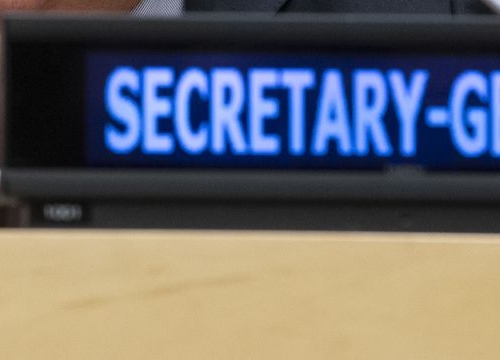Treaty Bodies, States and NGOs Discuss the Last Report of the UN Secretary General


UN Photo/Eskinder Debebe
19 March 2020
The current process of United Nations (UN) treaty bodies (TB) strengthening, leading to this year’s review by the UN General Assembly (UNGA), involves regular updates on the process by the UN Secretary-General (SG).
‘The last report by the SG is a continuation of the former ones, but is more detailed on individual communications, and also shows some worrying trends regarding the system’s sustainability. Despite efforts under UNGA Resolution 68/268, the state reporting compliance rate only rose minimally, remaining below 20 percent. Despite a capacity-building programme, 569 reports are overdue, which would imply a workload of about 219 weeks, if these were submitted. Even with more session time, still, 183 reports are in the backlog, which equals to some 70 weeks of work. Finally, notwithstanding efforts by the High Commissioner for Human Rights, including using extra-budgetary resources, the backlog of individual communications continued to grow, meaning an average time of 6 years for a complaint to be treated’ underlines Felix Kirchmeier, Executive Director of the Geneva Human Rights Platform (GHRP).
At a GHRP meeting, diplomats, members of UN TBs and civil society representatives discussed and exchanged around this document and the upcoming review.
Towards TBs’ Own Solutions
‘This briefing complements an official presentation of the SG report by the Office of the UN High Commissioner for Human Rights (OHCHR). Our objective here was to allow for open discussions and interactions among various stakeholders on the report’s content, as well as on possible measures that UN TBs could take to improve the system’ explains Felix Kirchmeier.
‘This type of exchange is particularly important, as it seems that the political discussions towards a 2020 UNGA resolution do not envisage any major overhaul or reform of the system he adds.
At the meeting, the TB Review 2020 focal points of the Human Rights Committee, the Committee on Economic, Social and Cultural Rights and the Committee on the Elimination of Discrimination Against Women commented on what the report means for TBs. They also reported on their internal efforts towards harmonization and efficiency and underlined the importance of sustainable financing of their secretariats, as well as of getting support for a case management system to handle properly individual communications.









